Contents
Guide
List of Figures
List of Tables
Pagebreaks of the Print Version
RUSSIANINFORMATIONWARFARE
Assault on Democracies in the Cyber Wild West
BILYANA LILLY
NAVAL INSTITUTE PRESS
Annapolis, Maryland
Naval Institute Press
291 Wood Road
Annapolis, MD 21402
2022 by The U.S. Naval Institute
All rights reserved. No part of this book may be reproduced or utilized in any form or by any means, electronic or mechanical, including photocopying and recording, or by any information storage and retrieval system, without permission in writing from the publisher.
Library of Congress Cataloging-in-Publication Data
Names: Lilly, Bilyana, author.
Title: Russian information warfare : assault on democracies in the cyber wild west /Bilyana Lilly.
Description: Annapolis, Maryland : Naval Institute Press, [2022] | Includes bibliographical references and index.
Identifiers: LCCN 2022006406 (print) | LCCN 2022006407 (ebook) | ISBN 9781682477199 (hardcover) | ISBN 9781682477472 (ebook)
Subjects: LCSH: Information warfareRussia (Federation)History21st century. | Cyberspace operations (Military science)Russia (Federation) | HackingRussia (Federation)Political aspects. | DisinformationRussia (Federation) | Western countriesForeign relationsRussia (Federation) | Russia (Federation)Foreign relationsWestern countries. | BISAC: HISTORY / Military / Strategy | COMPUTERS / Security / General
Classification: LCC UA770 .L48 2022 (print) | LCC UA770 (ebook) | DDC 355/.033547dc23/eng/20220223
LC record available at https://lccn.loc.gov/2022006406
LC ebook record available at https://lccn.loc.gov/2022006407
 Print editions meet the requirements of ANSI/NISO z39.48-1992
Print editions meet the requirements of ANSI/NISO z39.48-1992
(Permanence of Paper).
Printed in the United States of America.
30 29 28 27 26 25 24 23 22 9 8 7 6 5 4 3 2 1
First printing
To Laura Survant and Fiona Hill
who showed me how to lead with grace
CONTENTS
ILLUSTRATIONS
Figures
Tables
PREFACE
This research examines how Moscow tries to trample the very principles on which democracies are founded and what we can do to stop it. In particular, the book analyzes why and how the Russian government uses cyber operations, disinformation, protests, assassinations, coup dtats, and perhaps even explosions to destroy democracies from within, and what policies the United States and other NATO countries can introduce to defend themselves from Russias onslaught.
The Kremlin has been using cyber operations as a tool of foreign policy against the political infrastructure of NATO member states for over a decade. Alongside these cyber operations, the Russian government has launched a diverse and devious set of activities that at first glance may appear chaotic. Russian military scholars and doctrine elegantly categorize these activities as related components of a single strategic playbookinformation warfare. This concept breaks down the binary boundaries of war and peace, and views war as a continuous sliding scale of conflict, vacillating between the two extremes of peace and war but never quite reaching either. The Russian government has applied information warfare activities across NATO members to achieve various objectives. What are these objectives? What are the factors that most likely influence Russias decision to launch a certain type of cyber operations against political infrastructure and how are they integrated with the Kremlins other information warfare activities? To what extent are these cyber operations and information warfare campaigns effective in achieving Moscows purported goals? This research addresses these questions and uses the findings to recommend improvements in the design of U.S. policy to counter Russian adversarial behavior in cyberspace by understanding under what conditions, against what election components, and for what purposes within broader information warfare campaigns Russia uses particular types of cyber operations against political infrastructure.
The book employs case study methods to identify patterns and areas of divergence across different cases that can inform the understanding of Russias offensive cyber playbook. The case studybased method qualitative comparative analysis (QCA) was used to identify factors that correlate with the initiation of Russian cyber operations across seven cases of Russia-attributed cyber attacks against political infrastructure in different NATO states and invited members. These factors include economic, political, social, and military activities, as well as country characteristics such as the NATO membership status and geopolitical legacy of the targeted country.
The book also maps the role of Moscows cyber operations in Russias broader information warfare operations against political infrastructure by building a heat map, or a Hack Map, of the main political infrastructure that Russian cyber threat actors most frequently targeted across the different case studies. The research further used the case study method process-tracing to build a framework in which it visualized the range of Russian state-supported activities and showed the integration and potential interaction of these activities within each information warfare campaign.
By identifying factors associated with the launch of Russian cyber operations and by visualizing the main activities in each Russian information warfare operation, this research found patterns in Russias offensive cyber operations that could facilitate the development of a theory about the factors that influence Russias decision to employ different types of cyber operations against election targets, and how the state uses these operations in broader information warfare campaigns. The insights gained into how Russia employs this tool could enable the United States and other governments to detect, defend against, mitigate, and counter these campaigns more effectively. It would also allow broader public and private sector actors to anticipate likely scenarios where Russia could employ these tools and proactively address them.
ACKNOWLEDGMENTS
I enjoyed writing this book because it not only provided me with the opportunity to spend a few years engrossed in reading the research of scholars and practitioners I deeply admire, but also gave me the wonderful excuse to travel to various countries in search of the clues that Russias state-sponsored actors have left behind. During my research trips, I had my fair share of fun. While traveling across Eastern Europe, my hotel room was broken into and I was chased by a screaming Russian soldier who wanted to confiscate my camera. On another trip, I met Russian military veterans and may or may not have ridden a Soviet motorcycle. In between my adventures, I drew knowledge from local archives and significantly benefited from conversations with a number of experts who graciously provided feedback and recommendations, which vastly improved the quality of this publication.
The research is based on a dissertation that I wrote as a part of my PhD program at the Pardee RAND Graduate School. My dissertation committee members provided critical supervision. Christopher Paul, who agreed to take the helm and serve as the chair of this dissertation committee, guided my writing with enviable methodological elegance and wealth of knowledge. The arguments in this research are shaped by what I learned from Chris and I will be applying this knowledge throughout my career. Igor Mikolic-Torreira, who was a member of my dissertation committee, inspired and encouraged me from the beginning of this research and shepherded it from its inception to its completion. No logical inconsistency escaped his sharp eye while his limitless grace ensured that every criticism was gently delivered, yet never ignored. I am deeply grateful for the energy, expertise, and insights he offered. Quentin Hodgson, who also agreed to serve on my dissertation committee, believed in my potential and provided me with the platform to practice leadership and grow while conducting this research and during my time at the RAND Corporation. He is a mentor, a friend, and a partner in crime I am so grateful to have. Michael Daniel agreed to serve as the external reader for this research. He lent his monumental knowledge and experience, which significantly improved the arguments on these pages. His humility and patience with my questions throughout the process of writing this work were awe-inspiring.


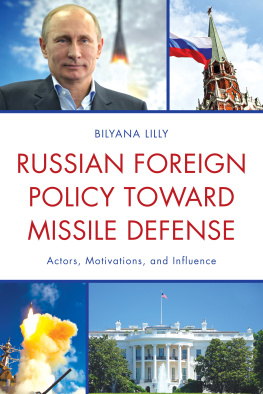
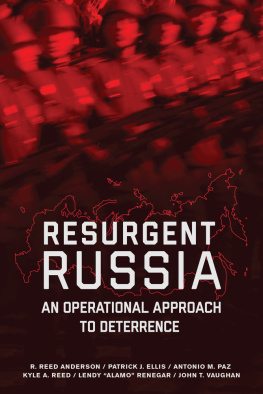
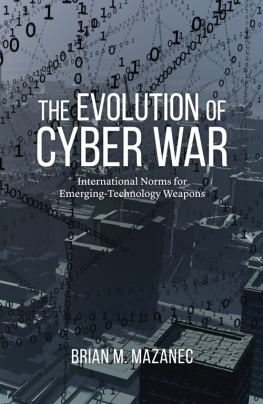
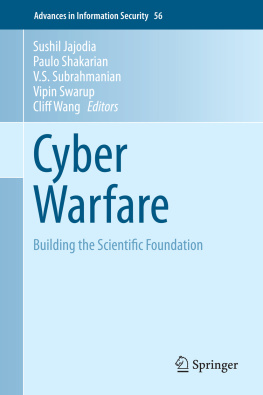
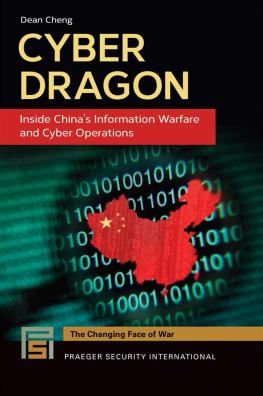
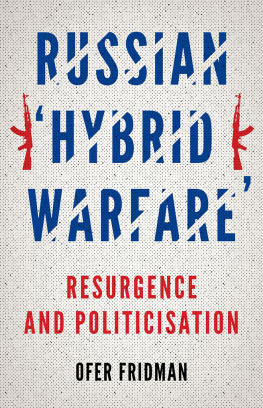
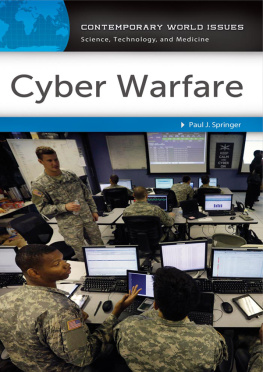
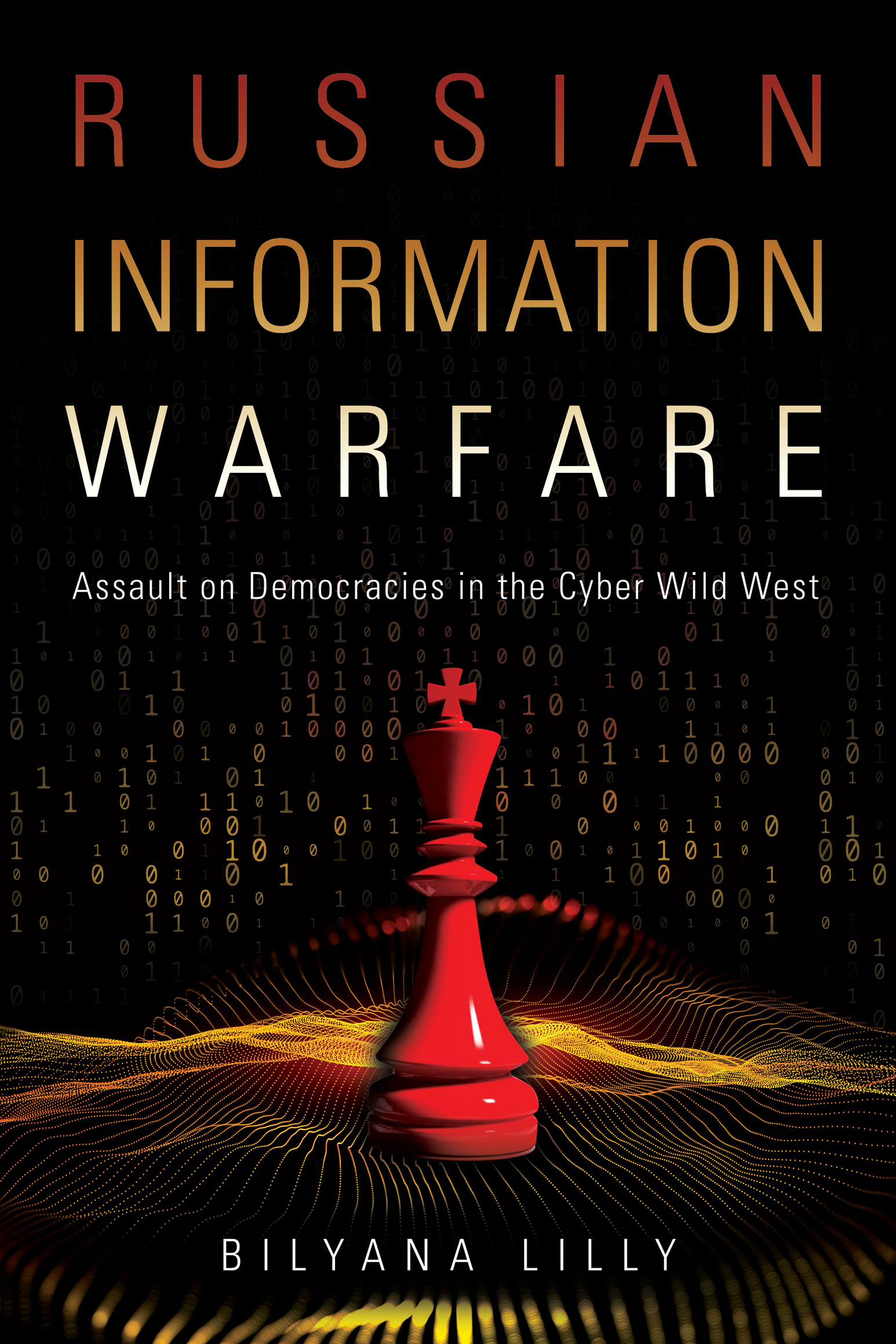
 Print editions meet the requirements of ANSI/NISO z39.48-1992
Print editions meet the requirements of ANSI/NISO z39.48-1992